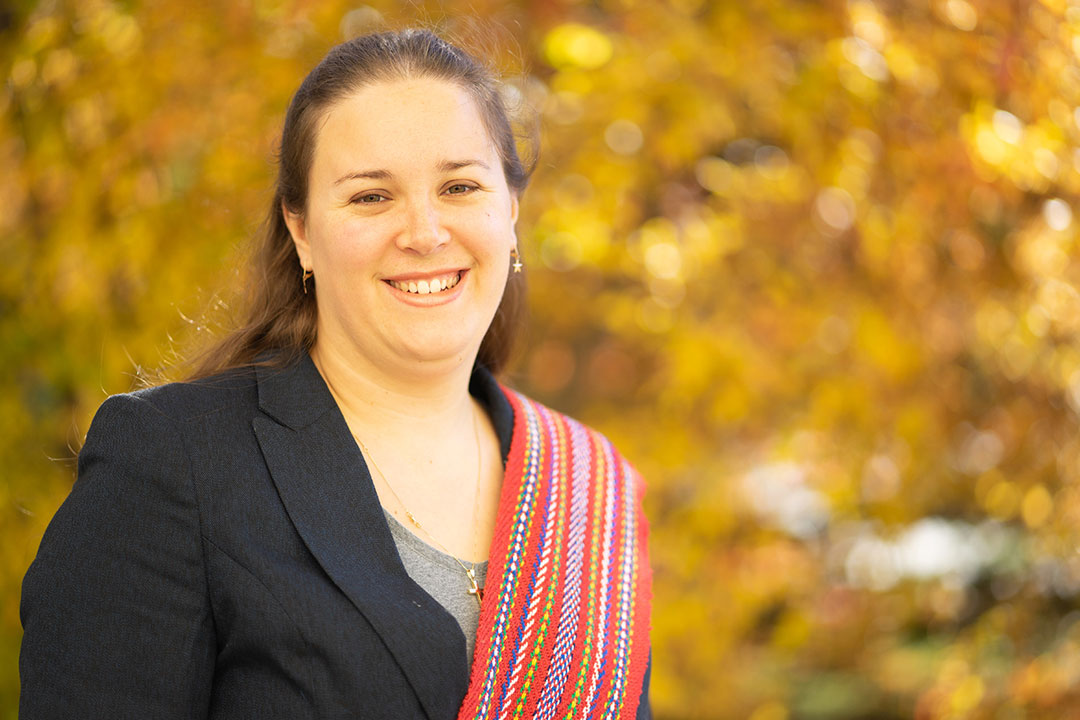
Kinesiology research chair examining social and cultural connections
University of Saskatchewan researcher Dr. Heather Foulds (PhD) is studying the role of social and cultural factors in heart disease and stroke among Indigenous women.
By Alyssa WiebeThe Canadian Institute for Health Research (CIHR), the Heart and Stroke Foundation, and USask recently awarded Foulds—the university’s Indigenous Early Career Women’s Heart and Brain Chair—a total of $730,000 over five years to complete her research.
“My research will focus on the prevention of cardiovascular disease with a specific focus on Indigenous populations and women,” said Foulds, a professor in the College of Kinesiology. “I am currently undertaking a project to assess the importance of culture and social support as mediators of risks of heart disease.”
Her research program will use a holistic approach to assessing the importance of cultural identity, cultural connectedness and social support as risk factors for cardiovascular disease among Indigenous women, investigating whether being culturally engaged, positively identifying with your culture and having social support networks may mediate risks of cardiovascular disease.
“From my initial master’s research working with a number of communities in British Columbia, we noticed that blood pressure was fairly low, even among communities with elevated rates of diabetes and obesity,” said Foulds. “My PhD work built on this observation. One of the important findings was that cultural identity and cultural engagement were important risk factors of hypertension among Indigenous populations, even more important than body size.”
Building on that idea, her current project will look at the importance of culture and social support for a larger array of risk factors. Foulds has collaborated with a committee of community advisors to design the project and are preparing for the first study.
The first step will be to get a sense of what culture means and what measurement of culture should look like, through focus groups and photovoice. The group has begun with a study in collaboration with Métis people on campus and anticipates undertaking a similar project with First Nations people in the near future.
The initial response to her research has been positive, with many of the Indigenous people she has spoken to recognizing the importance of culture and support in health.
“Indigenous women are a really important part of our communities,” Foulds said. “We play important roles both within the home and outside of the home, supporting families, children, grandchildren, Elders and other family members. Indigenous women are massively under-represented when it comes to understanding heart disease.”
Foulds hopes to increase recognition in mainstream medicine to show that women’s experiences of cardiovascular disease differ from men. She indicated that women with cardiovascular disease may experience less intense chest pain, additional discomfort in the torso region and arms, and unusual fatigue that is more likely to go undiagnosed and untreated. Mental stress can also be a trigger for women, and cardiovascular disease can often be confused for the flu.
While there are other researchers exploring the importance of culture in well-being or wellness in Indigenous communities through a qualitative approach, Foulds is not aware of any other researchers taking a more quantitative approach.
Foulds said that since 2010, the only data collected to evaluate rates of heart disease among Indigenous women are from her previous work in B.C.
“We are relying on out-of-date information, at least 10 years old, and a significant lack of information,” she said. “Based on my previous research, I anticipate culture and social support will be important contributors to risk factors of cardiovascular disease and overall health.”
Once her research is completed, Foulds will look at new cultural-based programs or interventions as a method of improving health for Indigenous women.

